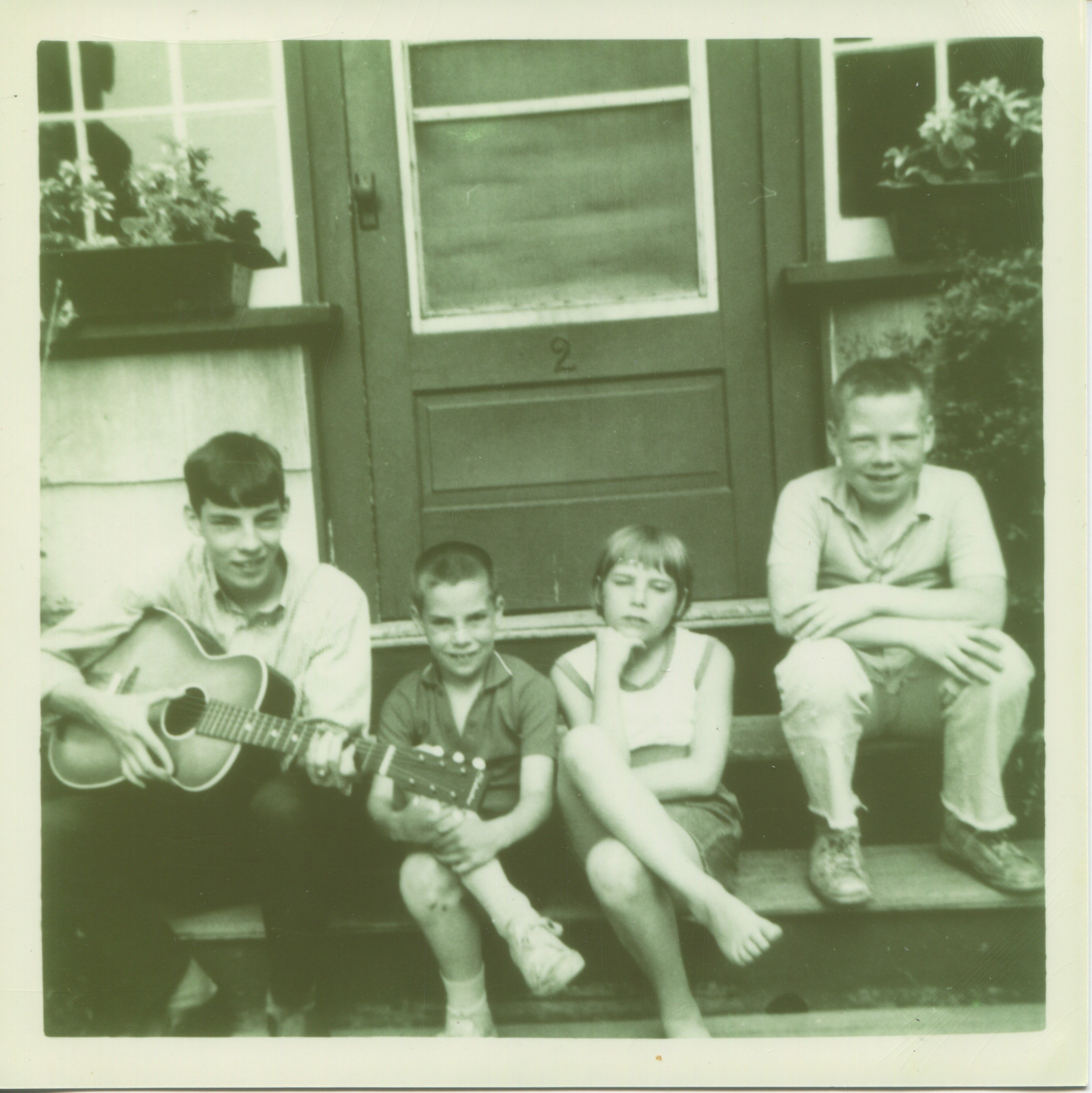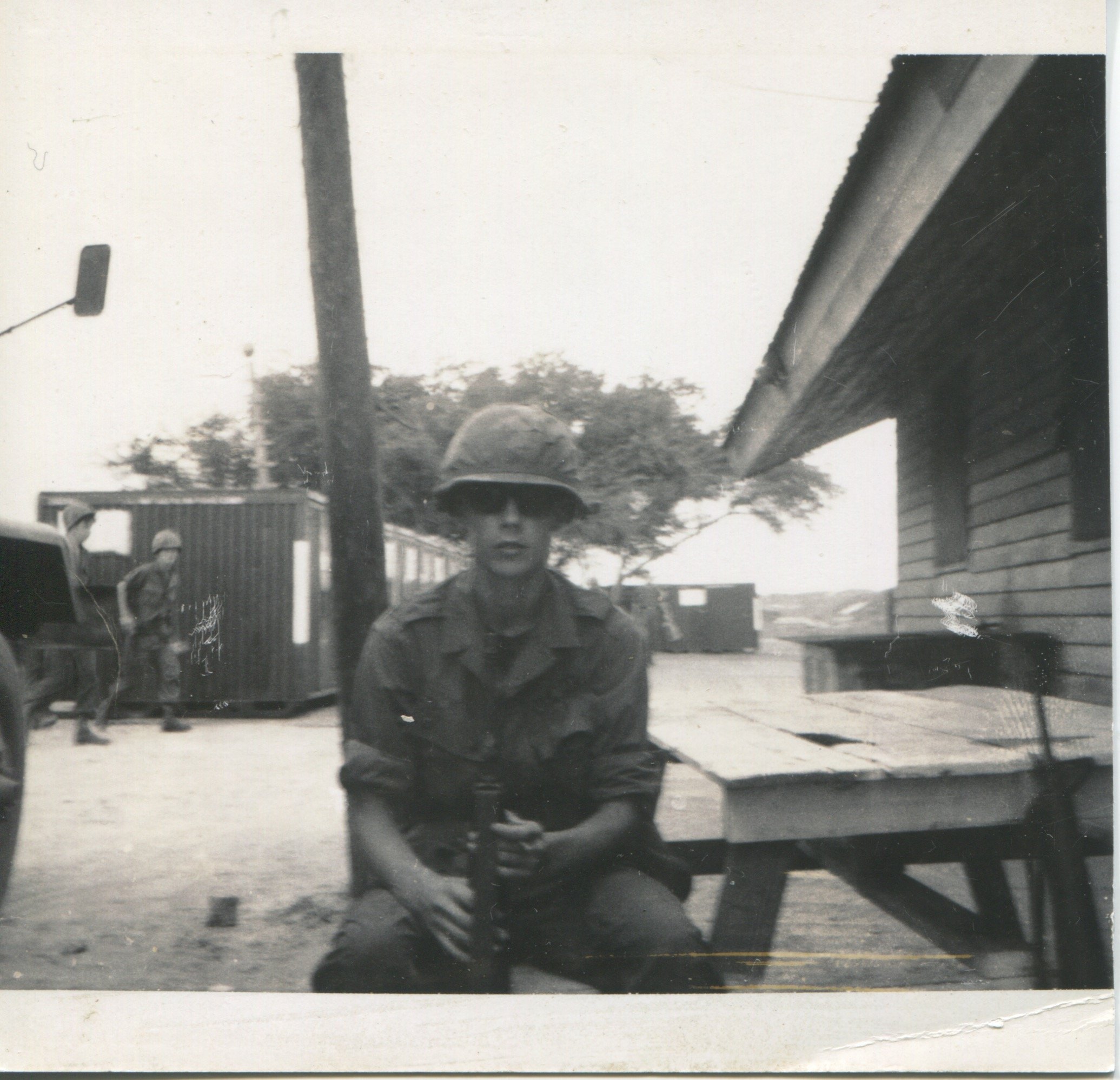How is storytelling the ultimate equalizer? Storytellers share how their experiences on Stories from the Stage made an impact on their lives and others.

Through eight seasons of Stories from the Stage, the award-winning show has encountered over 400 storytellers from all walks of life – differing backgrounds, cultures and perspectives. Each has bravely stepped into the spotlight, many for the first time, facing a live studio audience, to tell the world about one of the most vulnerable moments in their lives. It’s an act of courage that transforms fear into empowerment, leaving both the tellers and the audience changed.
Earlier this year, executive producer Patricia Alvarado Núñez and director Michael Rossi sat down with three of these storytellers – Jason Prokowiew, Jim Griffin and Connie Chin – to uncover how friends, family, and complete strangers have reacted to them sharing their stories and what the experience has taught them about themselves and the power of storytelling.
Jason shared a poignant story about growing up in the shadow of his father, an alcoholic and veteran, and how, at a crucial point in his life, one teacher saw him for everything he was and could be. His vulnerability struck a chord – his story has become the series’ most-watched on Facebook to date, sparking a flood of messages from viewers who saw their own experiences reflected in his words. It’s a testament to the profound connection a single story can forge.
“I had no expectations that this would reach 2.6 million people,” Jason said while reflecting. “The reach just kept growing to where I was getting these emails from New Zealand, Australia, Europe, and Asia.” He said the messages continue to this day, and it’s become an assurance of sorts that his trust in himself was well-placed.
“I came in scared to tell the story, particularly about my childhood experiences. What I got back was people finding themselves in my story,” he said. “The way that people felt comfortable to share some of their stories, and find the connective tissue between their experiences and mine…it was a beautiful experience.”
As a young adult, Connie tried – and failed – to learn Mandarin, her parents’ first language. When 3.3 million people from around the world connected with her story after watching a YouTube clip following her time on the show, Connie saw how relatable her plight was.
“People's time is valuable. They must be watching this because they're also getting something from the story and from my experience. That's the common thread: People are trying to learn, and it's not always easy. You need to get beyond the shame of failure when you're learning something,” she explained.
Jim knew he had a story that needed to be told about Tommy, the brother that he lost to the Vietnam War, but only found his outlet after seeing Stories from the Stage on television.
“[Tommy’s story] was in my family for years, and my oldest sister kept telling me I had to get it out there. One night, I was flipping through the channels, and I came across Stories from the Stage. I had seen the show a couple of times and thought, ‘That might be the spot to tell the story,’” he said.
During the height of the COVID-19 pandemic, when a live audience wasn’t possible for the show, Jim came to the Stories from the Stage studio to share his intimate story with only the cameras present. Later, when his story reached audiences across the country, it resonated in ways he could never have anticipated, creating an impact far greater than he’d imagined possible – today, 1.7 million people have heard Jim’s story.
“This reached further and wider than I ever expected. There was a tremendous outpouring of love for my brother,” he said. “In hearing from people, especially people I didn't know, there was one thing that really touched me: Someone made a comment saying, ‘This is about a brother's love for his brother.’ We grew up in a family where the L-word wasn't thrown around very often, so I don't think I ever got to tell my brother I loved him. But, through this, he knows it. Sometimes I think that he's sitting up in heaven with my mother and father, and they're talking about this TV show.”


When his story was released on Facebook, it was inundated with comments from veterans and military families. The biggest surprise? A soldier who had served with Tommy watched the story online and reached out with personal insight into his final hours. This man, Jim said, “was the physical person who got off the helicopter so that my brother could get on.” That helicopter would later go missing in action with Tommy on board.
“He told me, ‘Your brother was so happy all the time. There were days we had to remind him that he was in Vietnam.’ He told me how much everyone loved him. That really touched my heart,” Jim shared.
Jason, too, found that his experience on the Stories stage led him to a cherished reunion: Debra Smith, the teacher in his story, pulled out all the stops, creating new social media accounts, to get in touch with him after a friend sent her the story on Facebook.
“I don't know if my life would've cracked open as much as it did had it not been for Ms. Smith. She was so unapologetic with her energy and with her voice,” Jason shared. “This is somebody that I haven't talked to in decades, who made this big of an impact in my life. It was almost like getting an email from a hero.”
As Connie said, “We are all individuals, and you tell a story that you think is so unique to yourself, but the deeper you dig in, the more unique it is to you, somehow the more relatable it is to everybody else.”

Jason found that by discovering his own strength, he could spread a powerful message to so many others: “I was afraid, hesitant and cautious about the vulnerability that was going to be present if I shared these stories. But the reactions I got, where people felt relief or a release, made me feel like this work is important. It gave me confidence to keep telling the difficult stories,” he said.
The power of Jim’s story was a sense of closure for his family and rediscovering the capacity for hope: “My brother was the star of the family. He was the coolest guy I ever met. So I really, really looked up to him. I vowed that my brother wouldn't just end up as a name on a memorial somewhere – people were going to remember him,” he said. “Telling [the story] publicly took a little weight off my [and my family’s] shoulders. I used to be very sad when I talked about my brother, but today I'm very happy for the short time I had with him. It isn't a sad story; it’s a very happy story.”
And for Connie, the ability to lean on one another in a world that so often seeks to separate is the ultimate power: “We get in our own bubbles and tend to just know the people we know. When you have a moment where you can get to know [someone] through a story, it brings us back to our common humanity. We all have struggles, we all have moments of joy, beauty, anger and shame, and that's a connection that is so important.”
Want to tell your own story on our stage? Submit here for a chance to appear on the show!
Watch Stories from the Stage every Monday at 9:30/8:30c – find your local WORLD.
Follow Stories from the Stage on Facebook and Instagram and subscribe to our YouTube channel. Sign up for our newsletter to get stories in your inbox every week.
Enjoy our content? Consider donating to keep important storytelling like this going, and find more on PBS Passport.



